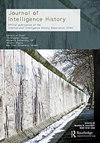Anticipating surprise in an era of global technology advances: a framework for scientific & technical intelligence analysis
引用次数: 1
Abstract
ABSTRACT This article suggests a framework analytic methodology for Scientific & Technical Intelligence (S&TI) that is geared towards finding adversarial accelerated, or ‘crash’ weapon development programs. First, the nature of historic accelerated weapon programs is studied, so that common elements and indicators can be developed. An analytical framework based upon the generalized way in which all ‘crash’ programs are run is then constructed. With this analytical framework, when some aspect of a program are uncovered, inferences to aspects which have not yet been observed can be drawn. Using this approach for uncovering ‘crash’ programs implies however a new partnership between collectors and analysts. A strategy to search for ‘crash’ programs is constructed in order to focus the collection and analytical energy on the problem of looking for such a program. This approach is three-stepped. The strategy uses an initial step of understanding the adversary’s perceptions to guide the search to the industrial sectors most likely to harbor such a program. A second step uses a search of that industrial sector for change which would point to specific activities and locations. And finally, detailed analysis and collection focused against the specific facilities uncover details that lead to the truth.预测全球科技进步时代的惊喜:科技情报分析框架
本文提出了一种科学技术情报(S&TI)框架分析方法,旨在发现对抗性加速或“崩溃”武器开发计划。首先,研究历史加速武器计划的性质,以便制定共同的要素和指标。然后,基于所有“崩溃”程序运行的通用方式构建了一个分析框架。有了这个分析框架,当程序的某些方面被发现时,就可以得出对尚未观察到的方面的推论。然而,使用这种方法来发现“崩溃”程序意味着收集者和分析人员之间的一种新的合作关系。构建了搜索“崩溃”程序的策略,以便将收集和分析精力集中在寻找此类程序的问题上。这个方法分为三步。该战略的第一步是了解对手的看法,引导搜索到最有可能藏匿此类计划的工业部门。第二步是搜索该工业部门的变化,这将指向具体的活动和地点。最后,针对具体设施的详细分析和收集揭示了导致真相的细节。
本文章由计算机程序翻译,如有差异,请以英文原文为准。
求助全文
约1分钟内获得全文
求助全文
来源期刊

Journal of Intelligence History
Arts and Humanities-History
CiteScore
0.50
自引率
0.00%
发文量
21
期刊介绍:
The Journal of Intelligence History is the official publication of the International Intelligence History Association (IIHA). It is an international peer-reviewed journal that aims to provide a forum for original research on the history of intelligence services, activities and their wider historical, political and social contexts. The journal aims to publish scholarship on all aspects of the history of intelligence, across all continents, countries and periods of history. We encourage submissions across a wide range of topics, methodologies and approaches.
 求助内容:
求助内容: 应助结果提醒方式:
应助结果提醒方式:


